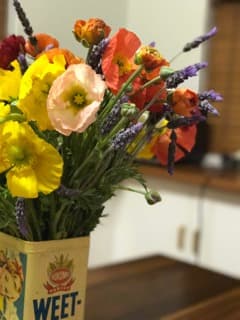They say “clutter is an inside job,” so, how many of us focus primarily on the tangible items that annoy our senses in the immediate environment? If visible clutter affects our emotions so severely, why do we ignore their origin? In other words, why do we clutter and then hate the clutter so much?

If we want to lead a life focused on fulfillment and finding tranquility (which comprises happiness), we need to discover the “why” behind our pursuit to declutter. Fulfillment comes from living a life inside our own sphere, rather than constantly trying to become someone else. I would like to focus on the process of making peace with your life and I encourage you to see this as a journey, not as an impossible challenge. If you can identify and focus on your highest strengths while making this journey of change, the result will be lasting.
When redefining and simplifying emotional space, the focus is personal truth and simple steps toward sustainable change. To do this, you should investigate motivation and intention for behavior change across all facets of life. You can redefine physical and mental landscapes, declutter thought patterns and relationships, and create a framework for taking action toward new goals. This will create a rewarding life and the freedom to breathe again. Clutter is not merely the items that we see: Clutter fogs our thoughts and our connections, directs our emotional responses, and disrupts our ability to be a complete person.
Some useful definitions are listed below. Remind yourself of them constantly while you make meaningful changes in your life:
Truth is more than mere facts or the visual body of things or events. Truth can also be defined as the sincerity of character or actions.
Clarity evokes words like cloudless, luminous, bright, transparent, untroubled, serene, bare, pure, plain, and even innocent.
Simplicity indicates something humble, unmixed, sheer, fundamental, and unconditional: Imagine the effect of this on your state of mind! Motivation is a stimulus that drives an incentive or an influential force.
Thoughts are most appropriately defined as inherent cognitive reasoning power or a developed intention. Behavior is the way a person conducts themself as a response to a stimulus and it generally involves some kind of action. Merriam-Webster defines it as “the way in which something functions or operates.”
Habits are best described as a “settled tendency.” We can also say it is a manner of a person’s bearing and in some instances, it has become completely involuntary. Merriam- Webster defines a habit as “the prevailing disposition of character of a person’s thoughts and feelings: The mental makeup, a behavior pattern acquired by frequent repetition or physiologic exposure that shows itself in regularity or increased facility of performance.”
This excerpt from Stop Hoarding, Be Happy focuses on the fact that if we want change that will last it is important to take responsibility ourselves. There is no lasting merit in following one-size-fits-all suggestions from others. Each of us must buckle down and do the work for ourselves. Let us make the decision and join may others who want to create positive change in their own lives.